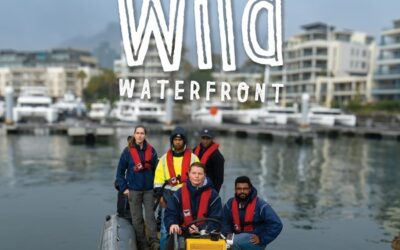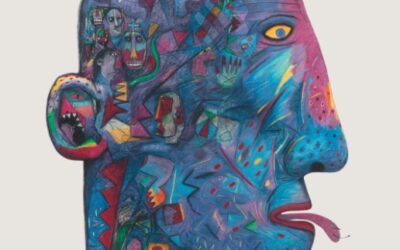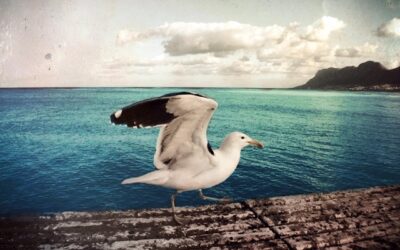UCT Summer School – all the intellectual stimulation of university study without the exams or entrance requirements!
University of Cape Town’s annual Summer School (7–25 January 2019) offers 113 short courses on everything from astronomy to zoology, music to current affairs.
- Discover the mysteries behind the human genome, neuroscience, spaceflight, sharks and the 1918 flu.
- Explore Islamic philosophy, land reform, Eastern Europe, great literature and famous art.
- Courses on wild bees, the scourge of plastic in the ocean, the Bloomsbury group, predicting the 2019 election, populism, the Silk Road, the Romanovs, SARS and organised crime.
- Listen to outstanding lecturers like Max du Preez, Mandy Wiener, Magda Wierzycka, Thuli Madolnsela and Colin Bundy.
Join the festival of learning. Click here to view the full programme
The Programme has the following categories:
- Arts & Humanities
- History, Philosophy & Contemporary Studies
- Science Conservation & Medicine
- Languages
- Practical Art
- Practical Writing
Courses where the focus is on Science and Conservation that attracted our attention.
THE END-PERMIAN MASS EXTINCTION: NEW EVIDENCE FROM SOUTH AFRICA AND ANTARCTICA
The End-Permian mass extinction was the worst biological crisis that the world had so far endured. 252 million years ago a rare combination of factors caused the near extinction of life. All species living today are descendants of the survivors of this catastrophe. Professor Roger Smith presents geological and palaeontological finds from SA and Antarctica that shed light on the causes, as well as the survivors that recolonised the southern continents in the earliest Triassic period. Ends 18 Jan.
BATS: CHIMERA OR MAMMALIAN POTENTIAL REALISED?
The combination of flight and echolocation has allowed bats to invade every terrestrial habitat, diversifying their form and behaviour leading to an elaboration of the basic mammalian body plan across more than 1000 species. Idiosyncratic adaptations make bats the most ecologically diverse mammals. Professor David Jacobs explores evolutionary adaptation and the creatures that have resulted from this adaptation. Frequently asked questions about bats will be answered. Ends 18 Jan.
THE NATURE OF BEES
Jenny Cullinan looks at the ecology of wild bees which are fundamentally important to all terrestrial life. 3 illustrated lectures cover the complex world of bees and their interconnectedness to everything around them. Lectures draw on observations made at Cape Point Nature Reserve, specifically on the impact of recent fires on the Cape honeybee; research on one nest in Noordhoek over a 4-year period and into the solitary bees of the South Peninsula. Ends 11 Jan.
AFRICAN FOSSILS AND FOSSIL HUNTERS
Africa (South Africa in particular) has one of the richest fossil records in the world, ranging from 3.5 billion years to the present. Dr Julien Benoit reviews the first fossil finds made in Africa during pre-scientific times by people of African, Asian or European origin. He introduces the wealth of the African fossil record to show its relevance for major transitions in vertebrate evolution and focuses on one peculiar group of African mammals, the Afrotheria (elephants). Ends 16 Jan.
GREEN ENERGY
This course will focus on the development, growth and prospects for green energy becoming the new normal. It will begin by describing the global drivers of the energy transition and some potential future scenarios, globally and in South Africa. It will then explore developments on the African continent, while subsequent lectures will concentrate on individual aspects of the transition to green energy. Ends 25 Jan.
GEOLOGICAL SUPERLATIVES IN AFRICA
This course by Dr John Rogers, David Reid, Dr Sharad Master and Nick Norman begins by drawing attention to geological superlatives in the Western Cape, particularly those in the Cape Peninsula. It tackles the theme of river capture to reveal the dynamic nature of landscape evolution, takes participants to the semi-desert region of the Richtersveld, and covers less-travelled territory in a lecture on the geoheritage of the Sahara Desert and the Sahel. Ends 25 Jan.
PLASTICS, PLASTICS EVERYWHERE
The problem of waste plastics in marine ecosystems extends more broadly as most marine plastics come from land-based sources. This course discusses the evidence for the impact of plastics on marine and freshwater ecosystems globally, and more specifically in the southern African region. It reports the distribution of plastics in marine and freshwater ecosystems in South Africa and adjacent oceans and concludes with the options being pursued to tackle the waste plastics problem in SA. Ends 17 Jan.
THE RHINOCEROS: ITS DECLINE AND FUTURE
Emeritus Professor Eric Harley outlines the evolution and geographic distribution of 5 extant species of rhinoceros and shows their relationships with other ungulate groups. The unfortunate demand for rhino horn has accentuated their plight and many rhinoceros species now face extinction.The course covers problems face some rhino species in captivity, conservation efforts, molecular genetic techniques and how modern advances in reproductive physiology and cell biology. Ends 25 Jan.
REVEALING THE SECRET LIVES OF SHARKS
Did you know that the Great White is just one of 1 171 species of shark in the world, that most sharks are small, and some don’t have teeth at all? Sharks are important because they keep ecosystems healthy, but how exactly they do that? Shark fishing and finning are global conservation concerns, but do you know where SA fits into the story? Ever wondered where those shark safety tips come from and how to use the safety tips? Ends 25 Jan.
WHAT SKELETONS CAN TELL
Bones as living tissues record various aspects of the life history of an animal. The fact that a skeleton can survive millions of years of fossilisation allows deductions to be made about the biology of long-dead animals. Professor Chinsamy-Turan and her PhD students discuss their current research on the skeletons of various animals: the beaks of modern and fossil probing birds, the specialised bones of animals living underground, of giraffes, and of dinosaurs. Ends 25 Jan.
WHAT & WHERE: UCT Summer School, Middle Campus, Rondebosch, Cape Town 7700
WHEN: 7 – 25 January 2019
INFO: T 021 650 2888 E ems@uct.ac.za Visit
See also Cape Town Green Map

![uct_summer_school_Happy_group[1] UCT Summer School](https://mapmyway.co.za/wp-content/uploads/2019/01/uct_summer_school_Happy_group1.jpg)




